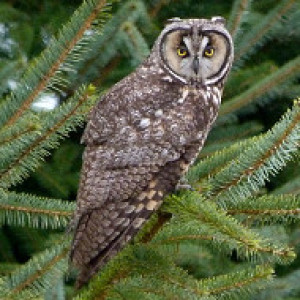Gallirallus australis
The cheapest way to sleep conveniently on Stewart Island (i.e. not many muddy kilometers into the backcountry in a spartan DOC hut) is on a well-manicured plot of grass at Stewart Island Backpackers. Twenty bucks gets you a "campsite," which is to say, square footage to pitch your tent on the lawn and access to the kitchen and shower facilities.
Throughout last night I was roused from the marginal sleep I usually get the first few nights in my tent by the nocturnal noises of all manner of native birds--the squawking of kaka and gulls, the wingbeats of wood pigeons, and other mysterious bird "song." Don't get me wrong--I'll take the lively calling of birds over the sounds of civilization any night. It was raucous music to my ears.
At one point though I was woken up by a strange noise, what sounded to me like a mammalian snorting, accompanied by the footsteps of tiny feet in the grass next to my tent. "Possum!" I shouted in my head in my sleepy delirium. More shnarfing. "Hedgehog!" But I was too close to unconsciousness to actually get up and see what was making the noise that so irrationally alarmed me.
Yet while I was walking one of the bush trails this afternoon I heard that noise again, and this time it was coming from something crashing through the bushes. I strained to see into the dense vegetation for the mysterious creature. Possummm....
It in fact wasn't a possum, but rather something entirely different--and preferable. It was a Weka, New Zealand's endemic bush chicken flightless rail, with two large chicks in tow. The adult was the noisy one, clucking at its chicks as they moved through the bush, not unlike I've seen American grouse species (and, admittedly, humans) do. Both parents incubate and help raise the chicks, so I'm not sure if this was Mum or Dad leading the way. Regardless it was definitely not as curious about me as it probably would have been by itself--without chicks, adult Weka have no reservations walking right up to people.
It's a fascinating species, especially with regards to conservation. It's one of the only endemic birds in New Zealand which has proved simultaneously difficult to reintroduce and problematic for other endangered species. Weka are enthusiastic breeders, rearing up to four broods in a year. When food supply is plentiful and nonnative predators few, they flourish, subsisting on insects, fruit, and unfortunately in some cases, the eggs of other ground-nesting birds. Its reintroduction to Codfish Island was cancelled once it was realized the birds were eating the eggs of the rare endemic Cook's Petrel. At the same time attempts to reintroduce certain subspecies to the mainland have failed completely in the face of rampant exotic predators. Yet there are some places where Weka are relatively stable and not eating up other endemics, such as the west coast of the South Island.
This is one of the chicks, peering out of the bush to see what I was all about. Curiosity is apparently an undeniable urge in this species. A full body chick shot is on Flickr.
- 5
- 0
- Panasonic DMC-FZ40
- 1/50
- f/4.1
- 57mm
- 800

Comments
Sign in or get an account to comment.


